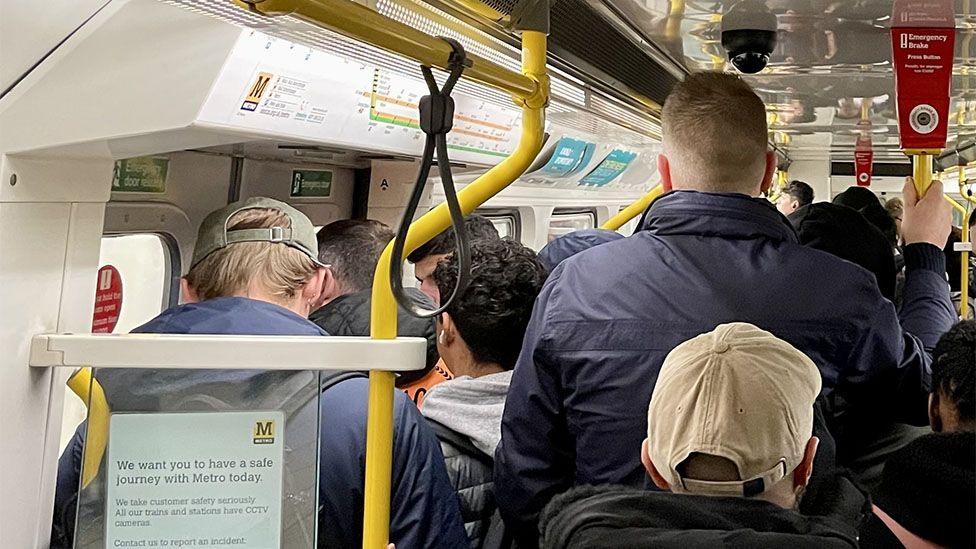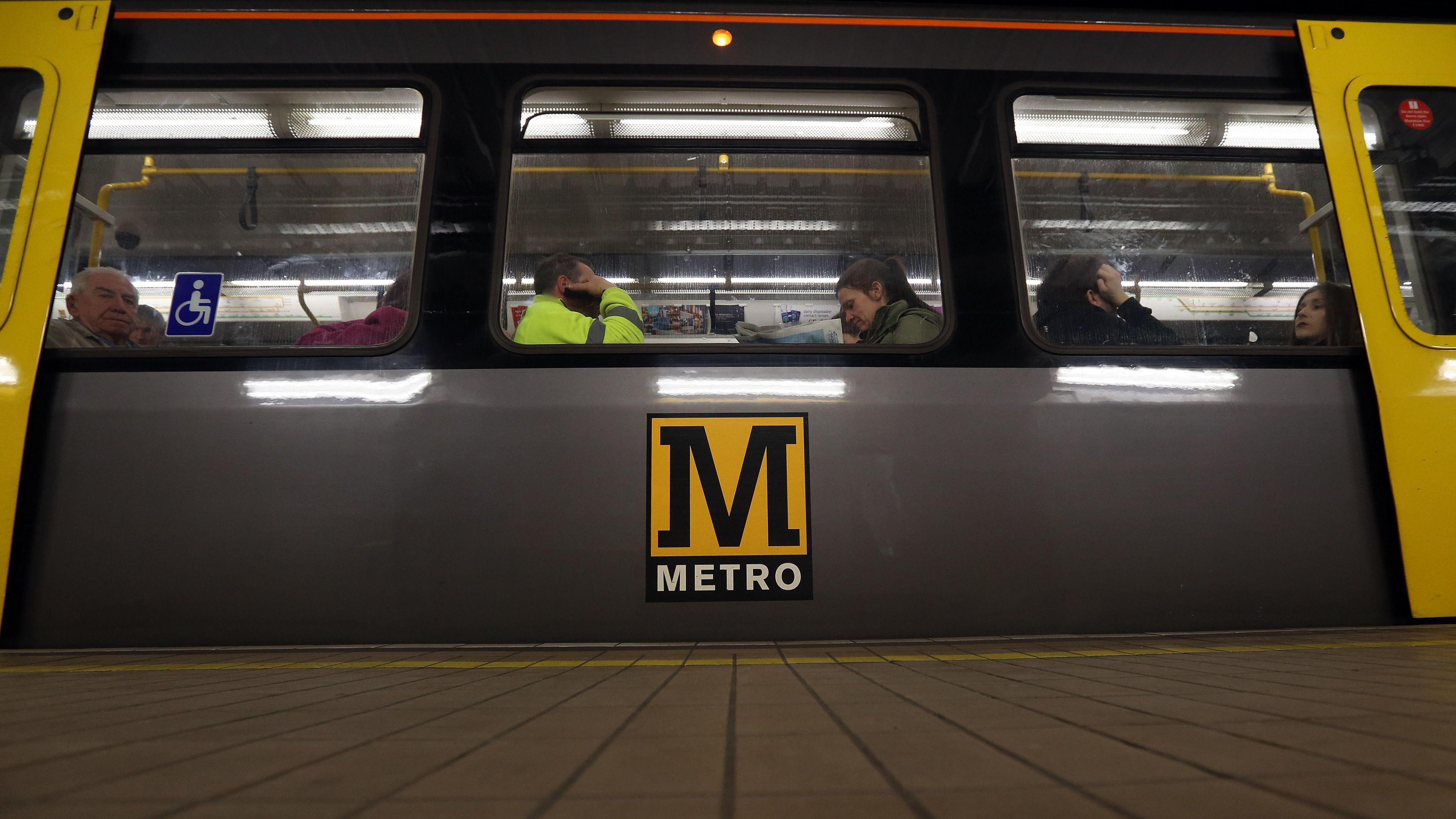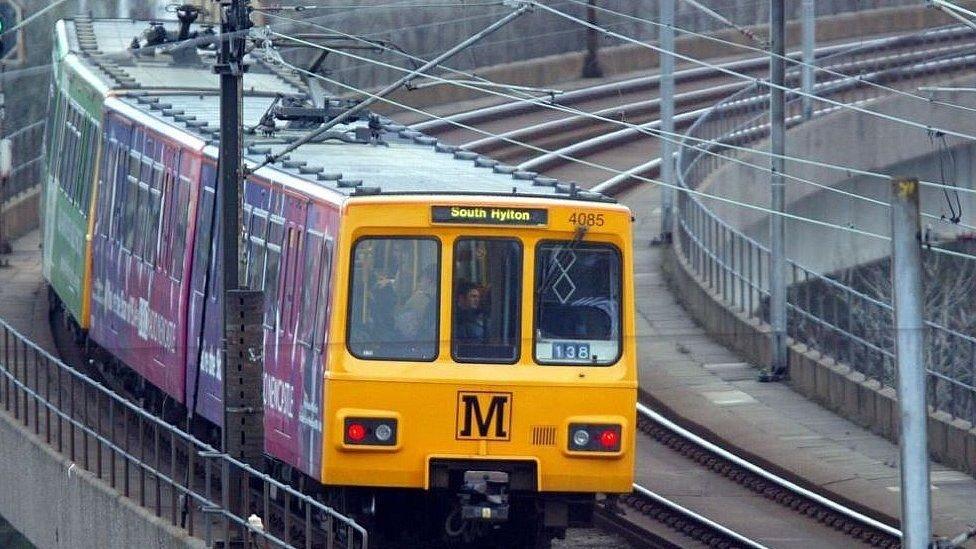Metro delays reach worst ever level

Operator Nexus hopes its new trains will start running in "early 2024"
- Published
Delays on the Tyne and Wear Metro reached their worst level in the network's history last year.
Just 61% of trains arrived on time in the four weeks to 9 December.
Metro Operator Nexus said it was taking steps "to improve fleet reliability".
Kevin Dickinson, from the Sort Out the Metro passenger campaign group, said performance “isn’t acceptable by anyone’s standard”.
Mr Dickinson said he understood the difficulties in maintaining the existing elderly Metro trains but added these were "predictable" and neither Nexus nor Stadler, which maintains the stock, "seem to have been able to get on top of" the problem.
"We have seen multiple reductions in timetable yet they are still unable to provide an effective service," he said.
"We get regular reports of people being late for work and many have reverted to car or bus travel when it is available."
'Frequency over punctuality'
Nexus classes trains as being on time if they are no more than 30 seconds early or three minutes late.
In October, passengers were warned the system was facing its "most challenging period" of keeping increasingly decrepit trains running ahead of the introduction of a new £362m fleet.
Punctuality had dipped from 70% to 63% and then fell to 61% between 12 November and 9 December, compared with 80% at the same time in 2022.
Nexus blamed adverse weather conditions and the unreliability of the existing trains, which are well beyond their 30-year shelf-life, for problems in November and early December.
Performance has now improved with punctuality above 80% in the last month, the Local Democracy Reporting Service said.
This is still below the Nexus target of 89.25%.
Metro operations director Kevin Storey said specialist heaters designed for use in the airline industry had helped improve train availability.
"It’s just one of the steps we are taking to improve fleet reliability," he said.
“But, as we transition to the new fleet and face more disruption exacerbated by the winter months, we will aim to prioritise frequency over punctuality."
It was hoped the new trains would start running by the end of 2023, but Nexus is now aiming for "early 2024".
Follow BBC North East on X (formerly Twitter), external, Facebook, external and Instagram, external. Send your story ideas to northeastandcumbria@bbc.co.uk.
Related topics
More on the Tyne and Wear Metro
- Published5 January 2024

- Published28 October 2023

- Published18 May 2023